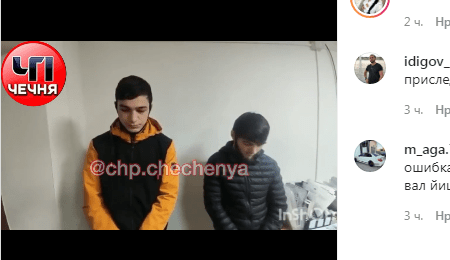
04 December 2020, 11:41
Residents of Chechnya publicly apologize for video about policemen
Law enforcers have posted on the Instagram a video with the repentance of two residents of Bachi-Yurt, who had spread their comic video with the participation of policemen in social networks. The authors' misconduct is not a crime; this case hardly needed any publicity, users have commented.
The "Caucasian Knot" has reported that Chechen law enforcers are regularly publicly scolding local residents for various offenses. Thus, on November 28, a video appeared on the Instagram, in which four teenagers publicly repented for damaging the fence in the school yard.
In the new video, the young men are repenting for their deed and urge others not to repeat their mistake.
"Law enforcers are working day and night; they are working, protecting you; but you put music on and laughed at them," the voice-over says.
Many commentators were outraged by the coercion of young people into public repentance.
This article was originally published on the Russian page of 24/7 Internet agency ‘Caucasian Knot’ on December 4, 2020 at 01:02 am MSK. To access the full text of the article, click here.




